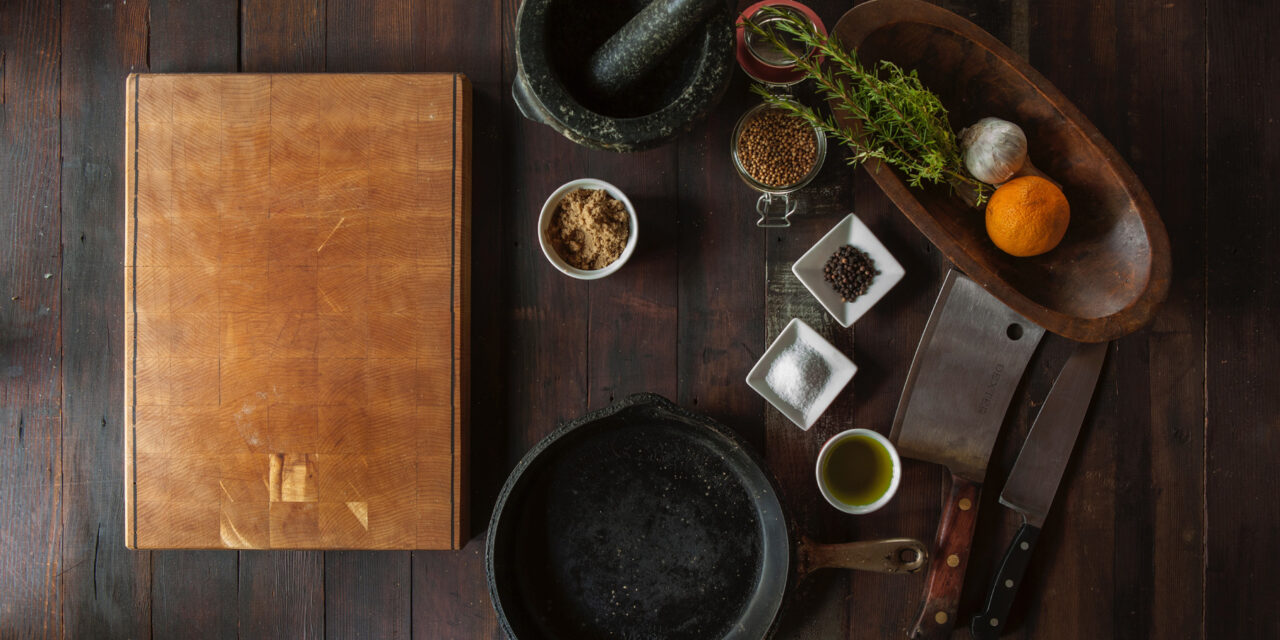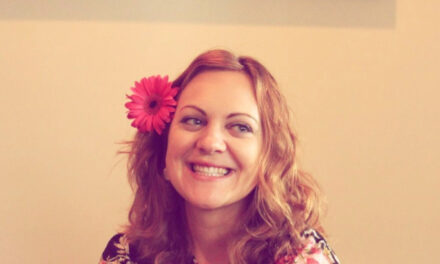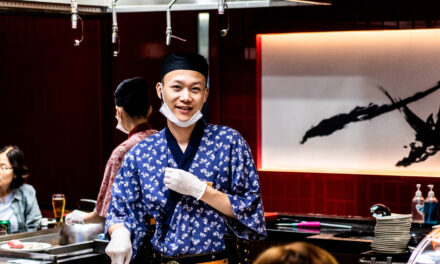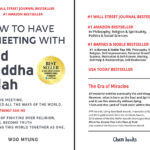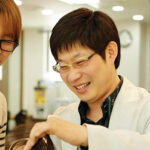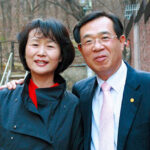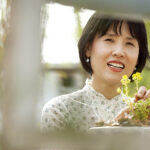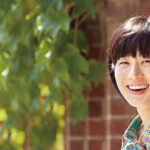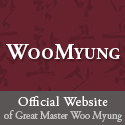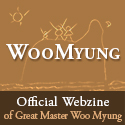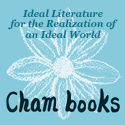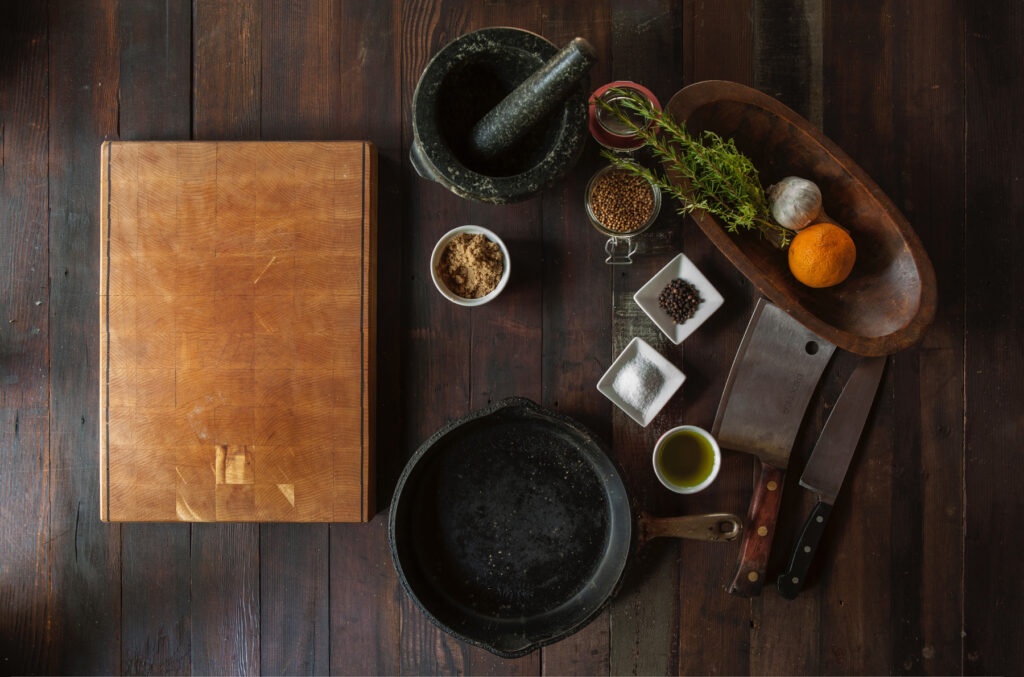
Deok-il Shin / Oriental Medical Doctor
Yeongdeungpo Market in Seoul is like many traditional markets lined with small and familiar shops that sell vegetables, sweet potatoes, and dried fish. There is the scent of fish cake wafting out from carts and fried fish cake restaurants. Among all those kinds of food stores there is an oriental medical clinic on the side of this vivacious market. Deok-il Shin (34), a young doctor, is the most popular doctor among the grandmothers and gentlemen who live hard day by day. He is ranked as the top ideal son-in-law among the elderly because of his good looks, good physique, and good heart.
At one point, he felt “The world was like a massive ball of stress.” Here is the story of how he overcame to become a warmhearted Oriental doctor.
Dr. Deok-il Shin, the happy oriental medical doctor at ‘Pyeonghwadang Clinic’
“Doctor, the sweet potatoes are very delicious so take them for yourself.” There is always a black ‘plastic bag’ on the table at the oriental medicine clinic. From sweet potatoes, corn, carp bread, roasted chestnuts, and drinks to side dishes like kimchi and salted fish, which are brought in by the “mothers” and “grandmothers” of the market. They don’t want him, an oriental medicine bachelor, to skip a meal. With just a glance, you can see how much the elders care about him.
“Grandmothers love to grab my hand, saying I’m like a son or a grandson. When I grab their hands that have become chapped by the cold air, I often feel a lump in my throat as I think of my own parents. When I hear about their hard lives, it’s like my parents’ stories.”
Since most of them live alone, they naturally miss human affection. In that sense, the illness may have been caused by the coldness and loneliness of the heart. There are things he considers as important as writing prescriptions and taking herbal medicine: a warm handshake or lending an ear and being a good listener of their hard life story.
“I thought a good doctor treats people truthfully, but it didn’t work out like my thoughts. But it’s no wonder it didn’t work out because my state of mind wasn’t right.” He says it was this meditation that showed him how much of a self-absorbed person he was. He only cared about himself.
The plight of the “gifted” who didn’t even eat with his younger brothers
Deok-il Shin was born in Cheongwon, Chungbuk Province, as the eldest of two sons and two daughters. His parents were busy farming, so he grew up in under the wing of his beloved maternal grandparents. In those days when there were no buses, he had to walk over two large mountains to get to elementary school. As an eight-year-old boy he got up at 6 a.m., carried his bag, and went over the mountains to school by himself. As the eldest grandson of the family, the elders showed him much love and regarded him as the one who had to meet the high family expectations. He was always told, “You have to be a great person.” So he thought it was only his brothers who had to help farm during the busy farming season.
“How arrogant I was. I didn’t even want to eat with my brothers. I ate food on my own. To me, I was righteous and good, so I didn’t understand why my brothers would just make trouble. I looked down on them a lot. Because of that when it was time to go to the army, they were very happy to hear that. I lived not really knowing ‘me’, yet.” As the eldest son, he went to oriental medical school for his family, and after graduation when he opened an oriental medicine clinic in Cheongju, he vowed to become a great doctor. However, as time went by, he found himself unable to treat patients with sincerity. On the surface, he seemed to do the best for the patients, but in fact, internally, he was annoyed by sick people. And he continuously judged their stories and would think to himself, ‘And that’s why you’re sick’.
It was hard at home, too. His parents were people who did everything for their children, but every single one of their acts became annoying.
In his eyes, his parents’ coarse language and blunt behavior were uncultured and ignorant. He often ignored his parents by saying, “What do you know?” Moreover, when he broke up with his girlfriend who he had thought of getting married to, he could no longer control his distress. He sought advice from his superiors around him, but their answers were the all the same. “You have enough. You don’t need to too worry about it. Others also live like that,” they said. Hoping that exercise would provide comfort, he swam, climbed mountains and drank. But his body became more exhausted and his problems weren’t getting resolved. Only then did he think it was a matter of the mind.
Saying “Thank you” at the dinner table for the first time
He began to meditate at the suggestion of one of his Chinese doctor aquaintances. A few days after he started meditating at his neighborhood centers. He surprised himself when he said, “Thank you, Mom” without realizing it in front of his mother at the dinner table. “I’m really ashamed of this, but I’ve never said that in my life. At that moment, I realized that the meditation study worked.
There was nothing to hesitate about. After leaving the oriental medicine clinic to a friend, he entered the meditation main center in Nonsan for several months. He saw his immature years of childhood, his frustration about patients, his dissatisfaction with his parents, and his arrogance. Those “selves” were not his true self, but his false self. Because of those false minds he had lived only hurting those around him. Those were simply false pictures, and were not the origin. He threw away the pictures one by one. During meditation, his shoulders ached as if a huge weight was being pressed down on them. He understood at that moment what was meant by a heavy weight on one’s shoulders. The shoulder pain disappeared when he threw away himself who had to be responsible for the family. It was at that moment when he realized that the body and mind are one.
“Oriental medicine expresses emotional changes as ‘Chiljeong’, which harms your body. Acupuncture and medicine can make you feel a little better. In fact, if you take cold medicine when you’re angry, it will make you feel better for a while. But if you don’t pull out the root mind, it’s hard to solve the problem. I realized the importance of the mind.”
Questions that had not been solved while studying oriental medicine were naturally answered through meditation. He then took over his senior’s office in Seoul near the Yeongdeungpo Market.
Ma-Eum Su-Ryun is the study to make a human being
“My treatment of patients has changed. I feel less stressed and more relaxed because rather than thinking I am going to save their lives, I now have a humbler mind and think that I will help people from feeling uncomfortable. I used to get stressed out trying to fit my patients into the boxes of knowledge I know. Now, I just listen to the patient first. That way, you can see what the other person wants.”
When patients come, he makes sure to ask about family relationships in addition to symptoms. It is usually because people suffer due to the conflicts they have with people closest to them. He just listens to the patients and all that he or she wants to say. That alone calms their hearts and helps them. However, the root of the problems in the heart must cleaned in order for it to be discarded. So he believes that either oriental or occidental doctors should do the meditation study.
“I can’t hear you when I’m narrow-minded. That in itself is stressful. But when I have no mind, no bias and just listen, I see that the patients feel very comfortable.”
“I’ve come to appreciate the world because I’ve become free from life,” he said. He started a new career last year. He participated in a medical volunteer club, which consisted of doctors who had done Ma-Eum Su-Ryun, where they did volunteer work in rural areas. He went to ‘help,’ but in fact he was helped more and learned more.
So he describes the meditation as ‘the study to make a human being.’ “I’m so grateful to be able to live with others. It gives me true joy and happiness. I think I’ve finally become a real doctor when I deal with patients, a real doctor who can actually understand even the patients’ mind.”
Source: www.meditationlife.org
